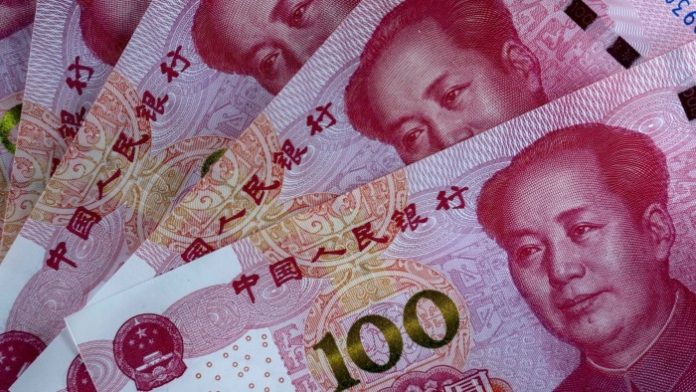China’s currency has weakened to a 16-month low as concerns over potential sharp tariff increases from the incoming Trump administration fuel worries about the growth prospects of the world’s second-largest economy.
The onshore renminbi dropped 0.1 per cent to Rmb7.34 against the dollar on Wednesday, marking its weakest level since September 2023, despite the People’s Bank of China maintaining a steady fixing rate ahead of Donald Trump’s inauguration later this month.
China’s currency is allowed to trade within 2 per cent of the daily rate set by the central bank, and the exchange rate is approaching the lower limit of that trading band.
The selling pressure in part reflects concerns that Trump’s proposed steep tariffs on Chinese products would compel the PBoC to devalue the renminbi to counteract their impact on exports, which have supported economic growth in the face of weak domestic consumer demand.
“The market is eager for a devaluation of the renminbi,” said Wee Khoon Chong, a senior markets strategist at BNY.
On Wednesday, the PBoC announced a daily fixing rate of Rmb7.1887 against the dollar, almost unchanged from Tuesday’s rate of Rmb7.1879. However, pressure on the exchange rate increased after strong US economic data boosted the dollar on Tuesday.
The selling pressure on the renminbi is mainly due to the “Trump trade,” according to Ju Wang, head of greater China foreign exchange and rates strategy at BNP Paribas. “The market has been reacting this way since the US election…we believe a lot has already been priced in, but the market remains cautious.”
Wang noted that the PBoC seems to be adopting a “wait-and-see” approach.
Analysts suggest that the central bank aims to maintain a stable exchange rate as it awaits more clarity on Trump’s trade policies, warning that any slight adjustment in the fixing rate could trigger a significant sell-off of the Chinese currency.
Trump has indicated plans to impose tariffs as high as 60 per cent on China.
Chinese stocks also declined on Wednesday, with mainland China’s CSI 300 index dropping 0.3 per cent and Hong Kong’s Hang Seng benchmark falling 1.1 per cent.




